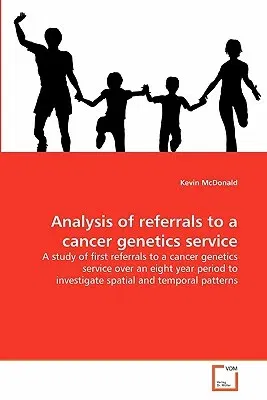Kevin McDonald
(Author)Analysis of referrals to a cancer genetics servicePaperback, 21 December 2010

Qty
1
Turbo
Ships in 2 - 3 days
In Stock
Free Delivery
Cash on Delivery
15 Days
Free Returns
Secure Checkout
Print Length
176 pages
Language
English
Publisher
VDM Verlag
Date Published
21 Dec 2010
ISBN-10
3639319753
ISBN-13
9783639319750
Description
Product Details
Author:
Book Format:
Paperback
Country of Origin:
US
Date Published:
21 December 2010
Dimensions:
22.86 x
15.24 x
1.04 cm
ISBN-10:
3639319753
ISBN-13:
9783639319750
Language:
English
Location:
Saarbrucken
Pages:
176
Publisher:
Weight:
267.62 gm

